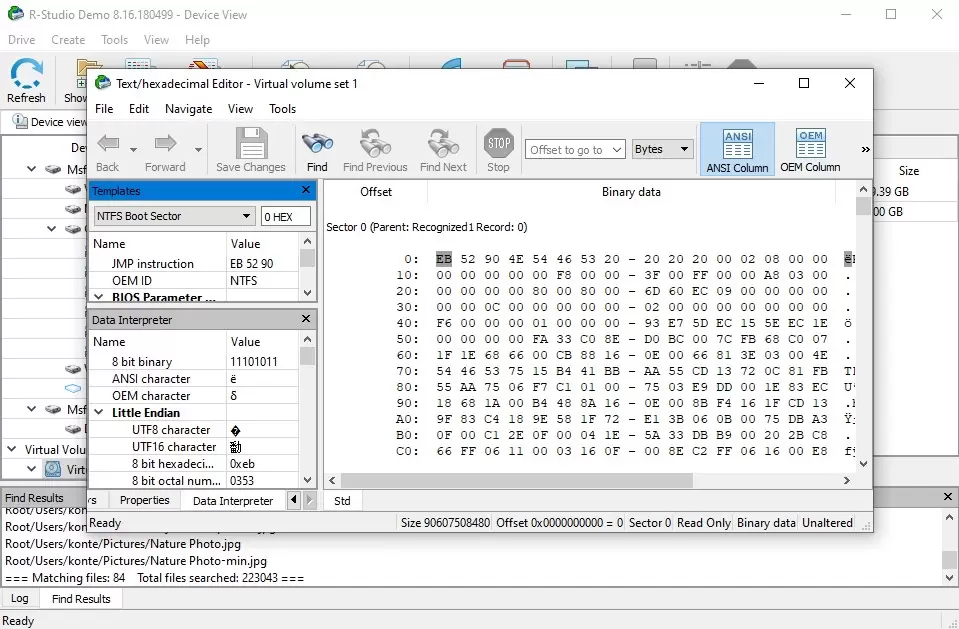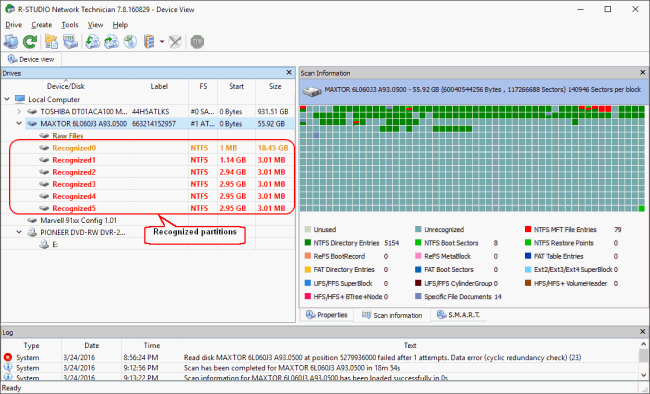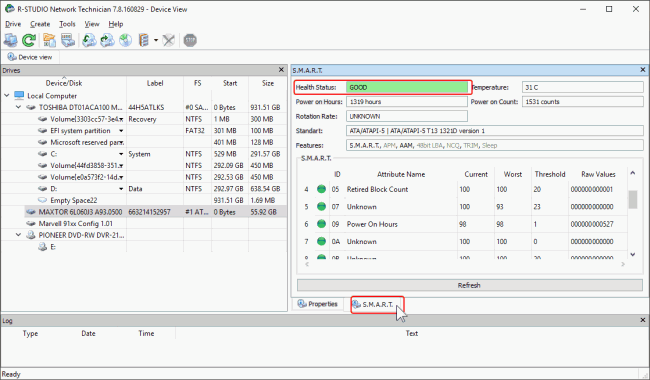
R-Studio Data Recovery (Activation number included)
Last Updated:20-07-2024, 10:52
r studio file recovery
About
r studio file recovery
R Studio File Recovery: A Comprehensive Guide R Studio File Recovery: A Comprehensive GuideIn the world of data analysis and statistical computing, R Studio has emerged as a powerful and versatile integrated development environment (IDE). However, like any software, users may encounter situations where files are accidentally deleted or corrupted. This is where R Studio File Recovery comes into play, offering a lifeline to those who need to retrieve their valuable data. This article delves into the intricacies of R Studio File Recovery, providing a detailed overview of its features, usage, and best practices.
Understanding R Studio File Recovery
R Studio File Recovery is a specialized tool designed to help users recover lost or damaged files created within the R Studio environment. Whether you're dealing with a script that's been accidentally deleted or a project that's become corrupted, this software can be a crucial resource. It operates by scanning your system for remnants of the lost files and attempting to reconstruct them, thereby minimizing the risk of data loss.
Key Features of R Studio File Recovery
R Studio File Recovery boasts a range of features that make it an essential tool for data analysts and statisticians. Some of the key features include:
Deep Scanning: The software performs a thorough scan of your system to locate any traces of deleted or corrupted files. File Preview: Before initiating the recovery process, you can preview the files to ensure they are the ones you need. User-Friendly Interface: The intuitive interface makes it easy for users of all skill levels to navigate and use the software. Support for Various File Types: R Studio File Recovery supports a wide range of file types, including R scripts, R Markdown files, and more. Quick Recovery: The software is designed to recover files quickly, minimizing downtime and ensuring you can get back to work as soon as possible.How to Use R Studio File Recovery
Using R Studio File Recovery is a straightforward process. Here's a step-by-step guide to help you recover your lost or damaged files:
Step 1: Download and Install R Studio File Recovery
The first step is to download and install the R Studio File Recovery software on your computer. You can typically find the software on the official R Studio website or through trusted third-party providers. Once downloaded, follow the installation instructions to set up the software on your system.
Step 2: Launch the Software
After installation, launch the R Studio File Recovery software. You'll be greeted with a user-friendly interface that guides you through the recovery process. The main screen usually displays options for starting a new scan or accessing previously recovered files.
Step 3: Initiate a Scan
To begin the recovery process, select the option to start a new scan. The software will prompt you to choose the drive or folder where the lost files were located. Once you've selected the appropriate location, the software will initiate a deep scan to locate any traces of deleted or corrupted files.
Step 4: Preview and Select Files
After the scan is complete, the software will display a list of recoverable files. You can preview these files to ensure they are the ones you need. Use the checkboxes to select the files you want to recover and proceed to the next step.
Step 5: Recover Selected Files
Once you've selected the files, click on the recovery button to initiate the recovery process. The software will attempt to reconstruct the selected files and save them to a specified location on your system. It's important to choose a different location than the original one to avoid overwriting any existing data.
Step 6: Verify Recovered Files
After the recovery process is complete, verify the recovered files to ensure they are intact and functional. Open the recovered files in R Studio to confirm that they contain the data you need and that they are free of errors.
Best Practices for Using R Studio File Recovery
To maximize the effectiveness of R Studio File Recovery and minimize the risk of data loss, consider following these best practices:
Regular Backups
One of the most effective ways to prevent data loss is to maintain regular backups of your R Studio files. Use a reliable backup solution to regularly save copies of your scripts, projects, and other important data. This way, if you ever need to recover a file, you can simply restore it from the backup rather than relying on file recovery software.
Use Version Control
Implementing version control is another excellent practice for protecting your R Studio files. Tools like Git allow you to track changes to your files over time, making it easier to revert to previous versions if necessary. Version control also facilitates collaboration, as multiple users can work on the same files without the risk of overwriting each other's changes.
Keep Software Updated
Ensure that both R Studio and R Studio File Recovery are kept up to date. Software updates often include bug fixes, performance improvements, and new features that can enhance the stability and functionality of the tools. Regularly checking for and installing updates can help prevent data loss and improve the overall user experience.
Educate Yourself on Data Recovery
Take the time to educate yourself on the basics of data recovery and the specific features of R Studio File Recovery. Understanding how the software works and the best practices for using it can help you respond more effectively in the event of data loss. Consider reading user manuals, watching tutorial videos, and exploring online forums for additional insights and tips.
Common Issues and Troubleshooting
Despite its effectiveness, users may occasionally encounter issues when using R Studio File Recovery. Here are some common problems and their potential solutions:
Incomplete Recovery
If the recovered files are incomplete or missing important data, try running the scan again with different settings. Sometimes, adjusting the scan depth or changing the search parameters can yield better results. Additionally, ensure that the files were not overwritten before the recovery attempt.
Corrupted Recovered Files
If the recovered files are corrupted or unable to open, verify that the recovery process was completed correctly. Ensure that the files were saved to a different location than the original one to avoid overwriting any existing data. If the issue persists, consider reaching out to the software's support team for further assistance.
Slow Performance
If the software is running slowly or taking an unusually long time to complete a scan, check your system's resources. Close any unnecessary applications or processes to free up memory and CPU usage. Additionally, ensure that your system meets the software's minimum requirements for optimal performance.
Compatibility Issues
If you encounter compatibility issues between R Studio File Recovery and your operating system, verify that you are using the correct version of the software. Some software providers offer different versions for different operating systems, so ensure that you have downloaded the appropriate one for your system.
Conclusion
R Studio File Recovery is an invaluable tool for anyone who works with R Studio and faces the risk of data loss. Its comprehensive features, user-friendly interface, and robust recovery capabilities make it a go-to solution for recovering lost or damaged files. By following best practices, staying informed, and addressing common issues, you can maximize the effectiveness of R Studio File Recovery and protect your valuable data. Whether you're a seasoned data analyst or a beginner, having R Studio File Recovery in your toolkit can provide peace of mind and ensure that your work remains secure and accessible.


